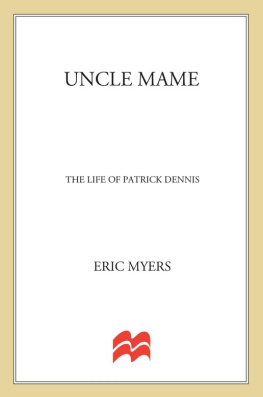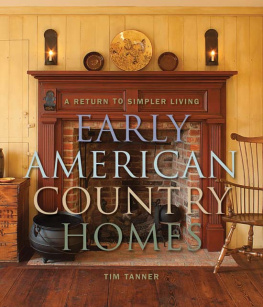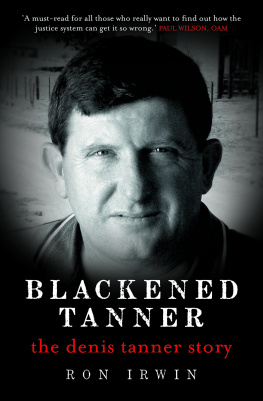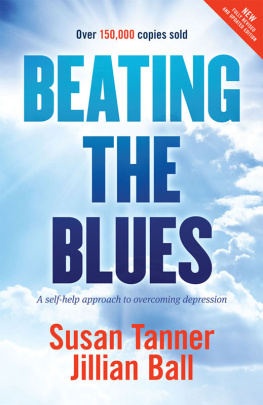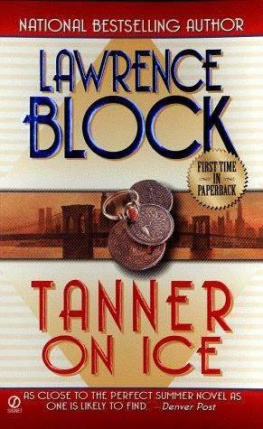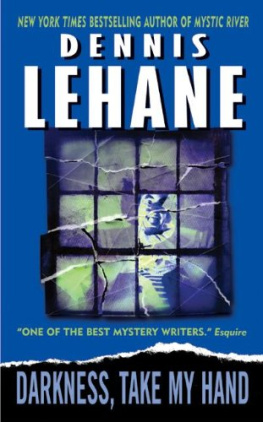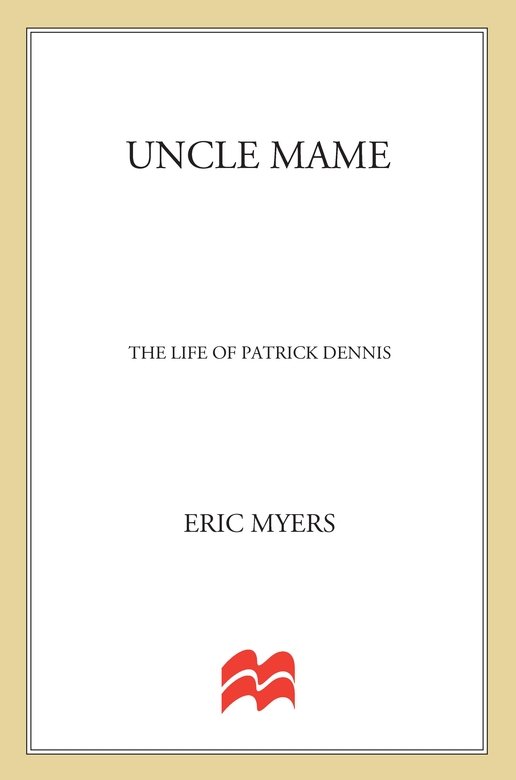Historians of popular culture face a common dilemma: the subjects they are researching are often not considered important enough to have engendered any kind of serious documentation by scholars. I found this to be the case with Patrick Dennis. Aside from the newspaper and magazine interviews he occasionally granted when a book was published, there remains little mention of him in critical or historical texts. The veil of silence that seemed to drop over him after his death inspired me to seek out his story. The result was an article I contributed to the April 1997 issue of Quest magazine, which in turn led to this book.
With little in the way of research material, I depended on the recollections of those closest to Pat as my primary sources of information. Pats immediate familyhis widow, Louise Tanner, and his children, Michael and Betsy Tanneropened their hearts, their minds, and their memories to me, sharing thoughts that were often funny, sometimes painful, and always fascinating. Louise Tanner was introduced to me by her wonderful friends Elaine Adam and Vivian Weaver, who also allowed me to interview them about their pal Patrick and the wild days they shared at the Council on Foreign Relations. Elaine and Vivian were in turn introduced to me by our mutual friend Lita Weinrib, without whom this book would not have been possible.
Pat was lucky to have a long, long list of friends who adored him. Unfortunately, at least a dozen of those closest to him had passed away before this project was initiated. The information they might have contributed can only be imagined, but I am terribly grateful to those surviving friends of Pats who took the time to speak with me. Interviewswith nearly one hundred people formed the backbone for this book, and Id like to thank each of those individuals:
Cris Alexander and Shaun
OBrien
Marilyn Amdur
Lydia Anderson
David Anton
Abe and Nan Badian
Nancy Bequette
John Bowab
John Boxer
Carlisle Brazy (Connick)
Jacques and Glendora Brazy
Peggy Brooks
Kirk and Barbara Browning
Dr. William G. Cahan
Carmen Capalbo
Peggy Cass
Jerome Cavanaugh
Ross Claiborne
John Condit
Ricky Dalton
Bill Diebold
Frank and Bita Dobo
Michael Dobo
Professor Norman Dorsen,
NYU Law School
Barbara Harned Dorsett
Emi Fors
Robert Fryer
Dean Fuller
Gregor Gamble
Jean Garay
Violet Gershenson
Tom and Patty Godfrey
Dody Goodman
Murray Grand
Charles Gurney
James Harvey
Nancy Hoffman
Isabelle Holland
Robert Hutchings
Marjorie Jackson
Sister Joanna (formerly Susan
Hastings)
J. B. Johnson
Hervey Jolin
Webster Jones
Katie Kelley
Pansy Kimbro
Ring Lardner Jr.
Paula Lawrence
Janet Waldo Lee
Robin Little
Arthur Loeb
Cordelia Godfrey Longstreth
Jean Montague Massengale
Mildred B. Jones Mathers
E. G. McGrath
William McPherson
Dr. John Mock
Carlos Montes
Gordon Muchow
Julian Muller
Anne Noggle
Mary Pease
David Peterson
Nina Quirs
Abigail Rosenthal
Lucy Rosenthal
Roger Ross
James Sherburne
Joy Singer
Patty Sommer
C. B. Squire
Alan Stark
Keith Stevenson
William Stump
Robert and Elizabeth Valkenier
Jac Venza
Katherine Walch
William Weaver
Robert Weisel
Forrest Williams
Phyllis Williamson
Clinton Wright
Katherine Deane Wright
Thew Wright
Lyonel Zunz
In addition, many people who never actually knew Pat acted as conduits to some of the individuals above or helped to provide other information on Pat. They include Elliott Stein, Bruce Feldman, Hilary Knight, Michael Brittain, Lorraine Sattler, James Ireland Baker, Louise Kaufman, Robert Hofler, Steve Ross, Frank Andrews, the late Robert Mackintosh, Ray Powers, Gwin Chin, Libby Lyon, Marilyn Rogers, Jane A. Johnston, Robert Plunket, Leslie Goodwin-Malamuth, Richard Amdur, Elizabeth Bishop, Carol Townsend and Kathy Miehls of Evanston Township High School, Eden Juron Pearlman of the Evanston Historical Society, Eleonora Golobic of the American Field Service research library, Peter Swords, Robert Bryan, Tim Page, Anthony Chetwynd, Arturo Aldama, Jose Luis Ibanez, and Jerry Herman.
The following friends offered invaluable encouragement and support: Brooks Peters, Paul Rudnick, Scott Rudin, Howard and Ron Mandelbaum, Cyndi Stivers, Brian Kellow, Harry Clein, Bruce Goldstein, Richard Tyler Jordan, Peter Mintun, Eric Bernhoft, Jim Moon, and John Chapman.
Thanks are due my sister and brother-in-law, Fredricka and Tony Laurian, who provided me with a cabin in the woods overlooking Lake Tahoe for a week to begin work on this book. Completion also took place far from my hectic New York home, in surroundings of great restfulness and tranquillity, courtesy of the Asolare Foundation in Lexington, North Carolina, and the Vermont Studio Center in Johnson, Vermont.
My agent, Edward Hibbert of Donadio & Olson, tirelessly worked to find a good home for the book. Im deeply grateful to my editor,Keith Kahla of St. Martins Press, for taking me under his wing. Keiths assistant, Teresa Theophano, handled a thousand and one details and crises with unfailing aplomb and good humor. Robert Wyatt deserves a special thank-you for his early vote of confidence, his input, and his ceaseless encouragement. Copy editor Steven Boldt and production editor Robert Cloud, each with a fine eye for detail, have made invaluable contributions.
And to the handful of hard-core Patrick Dennis fans who have helped keep his name alive in the quarter century since his untimely death, my gratitude and the hope that he may finally begin to emerge from the shadows of neglect.
ERIC MYERS
New York City
May 2000
I. Pats article in The National Herald , August 15, 1943:
Greek Soldiers Are Deanna Durbin Fans by Edward E. Tanner 3rd
They know the Durbin repertoire by heart and Deanna is still the queen of Greece.
The Greek soldiers spirit is indomitable. They laugh at everything. Death, starvation or deprivation can never defeat them.
Because many Americans think mainly in superlatives, they can visualize only two kinds of Greeks: the meek Greek and the chic Greek. In other words, the American picture of a Greek is either the lovely Duchess of Kent and what shes wearing this year or the quiet little black-eyed man who runs that dingy restaurant on Sixth Avenue. These are the Greeks, just two kindshigh and low; nothing in between. I thought so too, until being attached to the Royal Greek Army, where one acquires not only an understanding of these people, but an undying devotion for them as well.
They are the most complete individuals in the world but they do combine certain marked characteristics which make them unique as a people as well as separate beings. Greeks are extremists in everything. In extravagance and frugality, love and hatred, joy and sorrow.
They are instinctively gentlemen: hospitable, friendly and generous to the breaking point. The first night we American Field Service men descended upon the ADS (Advanced Dressing Station), the reception tent was emptied and turned into AFS headquarters. Every Greek in the unit voluntarily pitched in to make us comfortable. Each man paid a brief polylingual social call armed to the teeth with cigarettes, fruit, precious sweets from Egypt, helpful suggestions and beautiful smiles.

